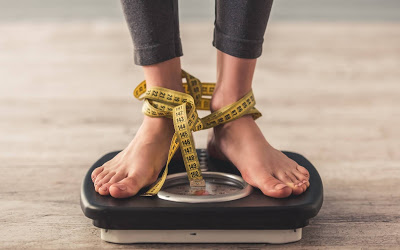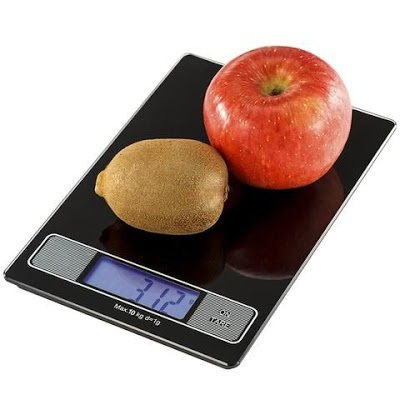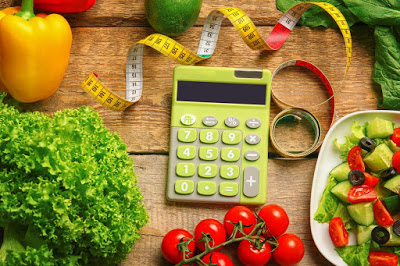Calories matter! Quantity or Quality?
‘It’s not the quantity of food that matters but the quality’
You must have come across the phrase a couple of times. But in terms of shedding pounds, does quality matter more than quantity?
In recent years, a calorie deficit diet has significantly gained popularity by providing mind-blowing results in losing weight and lowering down the risk of cardiovascular diseases. So why does a calorie deficit diet have such a substantial impact on our weight? To find out, let us first understand the relationship between the food, energy and calories.
What is a calorie?
A calorie is defined as the amount of heat required to raise the temperature of 1 gram of water through 1 degree Celsius. In other words, the energy released from the food we eat is measured in calories.
1 kilocalorie=4.184J
The calorie in versus calorie out confusion

Calorie input is obtained from the food consumed while calorie output is the energy required for your BMR, the thermogenic effect of food (TEF) physical activity and NEAT.
Basal metabolic rate (BMR)
BMR, also known as resting metabolic rate (RMR), is the amount of energy generated for metabolism like the synthesis of enzymes and hormones, maintenance of body temperature, working of the cardiac muscles and functioning of the brain cells. BMR represents 45% to 70% of the total energy expenditure (TEE) daily.
The Thermogenic Effect(TEF) of food
TEF is generally the amount of energy required to digest absorb and utilise food. These metabolic processes increase heat production and oxygen consumption. Depending on the diet consumed the total energy expenditure can go to about 10 to 15% of the BMR. Protein has the highest TEF, ranging from 20 to 25%, carbohydrates 6-8% and the lowest is fat, ranging from 2-3%.
Physical activity (PA)
This comprises of both obligatory and discretionary activities. Obligatory activities include household chores, going to work or looking after kids while discretionary activities include regular practice of physical activity to maintain health and fitness such as yoga, swimming and sports.
NEAT
Non-exercise activity thermogenesis (NEAT) constitutes all those activities that seem to be non-voluntary like picking up a pen, writing, raising a hand or even smiling.
Energy balance is achieved when the calorie input (dietary energy take) is equal to the calorie output (total energy expenditure). This means that there is an energy equilibrium and a steady weight is maintained.
Calorie deficit diet
A calorie deficit diet is a diet where the calorie output is greater than the calorie input. This reveals that following a diet with lower calories can help you burn more calories and promote weight loss. Hence, we agree that If you’re losing fat it means that the calorie output has exceeded the calorie input. Not to mention, weight loss can occur through muscle or water losses as well
What happens in a calorie deficit diet?
The average adult, belonging to a sedentary lifestyle, requires around 1200 to 1500 Kcal per day for a female while a male requires around 1500 to 2000 Kcal per day. Incase the calorie consumption is more than the body’s energy needs, the excess calories are stored in the liver and muscles as glycogen but most of those calories are stored in the adipose tissues as fat.
A study reveals that cutting down 500 calories a day, helps you lose 450 grams a week, isn’t that amazing? What happens to you when your body is supplied with fewer calories? It uses up the energy stored in the form of fat through the process of gluconeogenesis to meet the needs of our daily TEE. Hence, we end up losing pounds.
So does quality of food play an important role too?

We all know that not all calories are created equal. Eating one whole Apple or bowl of white rice will supposedly supply the same amount of calories. But considering an apple to be a nutrient-dense food with both soluble and insoluble fibres, the TEF of apple is higher than that of rice (since rice low in fibre) and therefore requires more energy to digest. An added benefit, apples are packed with vitamins and minerals almost nil in refined products.
Similarly, eating a protein-rich food will increase the metabolism than eating carbs or fats, since protein has the highest TEF value as mentioned before. Calories obtained from diets extremely high in fructose, present in many processed foods, baked goods, soda pop and many others, go straight to the liver, putting a heavy load. A toxic liver will elevate the levels of triglycerides to enhance the risk of heart diseases.
Therefore, we conclude that the quality of food does matter if we consider losing weight in a healthy way
Do Low-calorie diets lead to a lower BMR?
During calorie deficit diet, the metabolism of hormones such as insulin, leptin and triiodothyronine(T3) go down, suppressing the appetite and food intake. This also lowers down the BMR. On the contrary, when the calorie intake exceeds the calorie output, the levels of insulin, leptin and T3 go up, raising the BMR levels. This also tends to increase the levels of ghrelin known as the hunger hormone that stimulates appetite and promotes central obesity, if not controlled.
So, in this case, a question arises would the calorie output still be the same as the calorie input? Definitely not! incorporating healthy habits that go hand in hand with a calorie deficit diet does work wonders. Consuming a high protein and a high fibre diet would increase the total energy expenditure thereby boosting the metabolism, since these food have high TEF values. Also, maintaining a streak of small frequent meals will keep your BMR levels stable. Lastly, engaging in daily exercise for about 150-200 minutes a week would make a huge difference in your BMR.
Looking out for the right nutrition advice? Well, you’ve come to the right place! Esther Almeida is a certified adviser in food and health. She has also secured a diploma in Dietetics and Nutrition. Success begins with the tiny little habits we add to our lifestyle each day. Be a part of Esther’s fun and interactive blog. The tiny little changes you make will improve your well being. Click below:





ClaudOptof
buy doxycycline online uk: doxycycline antibiotic – doxycycline without prescription